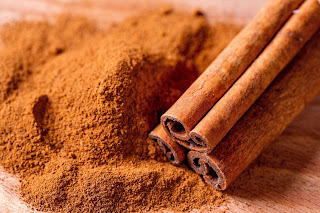Smells in Culture
In every culture, people associate smells differently. Through our society we learn about many spices and how they're used within our respective cultures. But it can be hard to grasp how other cultures percieve smells. Not only is it nearly impossible to describe smells, it's also hard to understand how other cultures associate scents.
In Deborah Green's Aroma of Righteousness she writes, “Not only was balsam the only spice actually produced in Israel and thus held in high esteem by the rabbis, many in the Roman Empire also thought it had the best fragrance; it was therefore highly valued by Jew and non-Jew alike. There is even less reason to associate the fragrance of cinnamon with the Bible. Cinnamon is mentioned in the Bible only three times (Prov 7:17; Song 4:14; and Exod 30:23), and never in reference to the Garden of Eden. It is thus unlikely that R. Aibu takes his cue directly from the biblical text. Rather, his association and its meaning are drawn from his cultural understanding and valuation of these spices.” Green makes an interesting point here. There are plenty of accounts of cinnamon being used in ancient cultures around the time, for example Egyptians were known to have used cinnamon in their embalming practices. But regardless, Green makes the argument that R. Aibu is using his own cultural associations with cinnamon in his interpretation of biblical text.
Certain smells have many different associations in different cultures around the world. Many ancient and modern cultures have used cinnamon in cooking, whether it be for the scent that it adds to the meal or the taste. However, there's evidence that the ancient Romans did find any culinary value to cinnamon. It was typically used for the scent, specifically burned in funeral pyres to mask the smell. To this day cinnamon is one of the most easily recognized spice smells. People all over the world still use it in cooking and baking, as well as aromatherapy. Studies have shown that cinnamon increases alertness and mental cognitive processing, and that it decreases fatigue.
For me cinnamon has the smell of heat. I think of cookies, pies, a plethora of baked goods. It reminds me of the little red candies that burn one's tongue if they sit too long. Perhaps that's why I associate cinnamon with the color red. It's a categorically warm spice so for me it evokes warm colors. And with the culture I was raised in, cinnamon is not commonly used in cooking, but heavily used in baking. My experience with cinnamon differs greatly from those in other cultures. And with each culture's associations that they have with spices, each see them differently in different contexts.
For more information on cinnamon see: here
By Marco Verch (CC BY 2.0)
In Deborah Green's Aroma of Righteousness she writes, “Not only was balsam the only spice actually produced in Israel and thus held in high esteem by the rabbis, many in the Roman Empire also thought it had the best fragrance; it was therefore highly valued by Jew and non-Jew alike. There is even less reason to associate the fragrance of cinnamon with the Bible. Cinnamon is mentioned in the Bible only three times (Prov 7:17; Song 4:14; and Exod 30:23), and never in reference to the Garden of Eden. It is thus unlikely that R. Aibu takes his cue directly from the biblical text. Rather, his association and its meaning are drawn from his cultural understanding and valuation of these spices.” Green makes an interesting point here. There are plenty of accounts of cinnamon being used in ancient cultures around the time, for example Egyptians were known to have used cinnamon in their embalming practices. But regardless, Green makes the argument that R. Aibu is using his own cultural associations with cinnamon in his interpretation of biblical text.
Certain smells have many different associations in different cultures around the world. Many ancient and modern cultures have used cinnamon in cooking, whether it be for the scent that it adds to the meal or the taste. However, there's evidence that the ancient Romans did find any culinary value to cinnamon. It was typically used for the scent, specifically burned in funeral pyres to mask the smell. To this day cinnamon is one of the most easily recognized spice smells. People all over the world still use it in cooking and baking, as well as aromatherapy. Studies have shown that cinnamon increases alertness and mental cognitive processing, and that it decreases fatigue.
(CC0)
For me cinnamon has the smell of heat. I think of cookies, pies, a plethora of baked goods. It reminds me of the little red candies that burn one's tongue if they sit too long. Perhaps that's why I associate cinnamon with the color red. It's a categorically warm spice so for me it evokes warm colors. And with the culture I was raised in, cinnamon is not commonly used in cooking, but heavily used in baking. My experience with cinnamon differs greatly from those in other cultures. And with each culture's associations that they have with spices, each see them differently in different contexts.
For more information on cinnamon see: here



I love cinnamon!! I love the smell and the taste, I also do not use it as much in cooking but I always add extra when I'm baking.
ReplyDeleteI used to really hate cinnamon growing up. I thought it was spicy.... but now I love it and I don't think it's spicy. I love to have it in my tea because it decreases fatigue but it's also just a comforting taste!
ReplyDelete